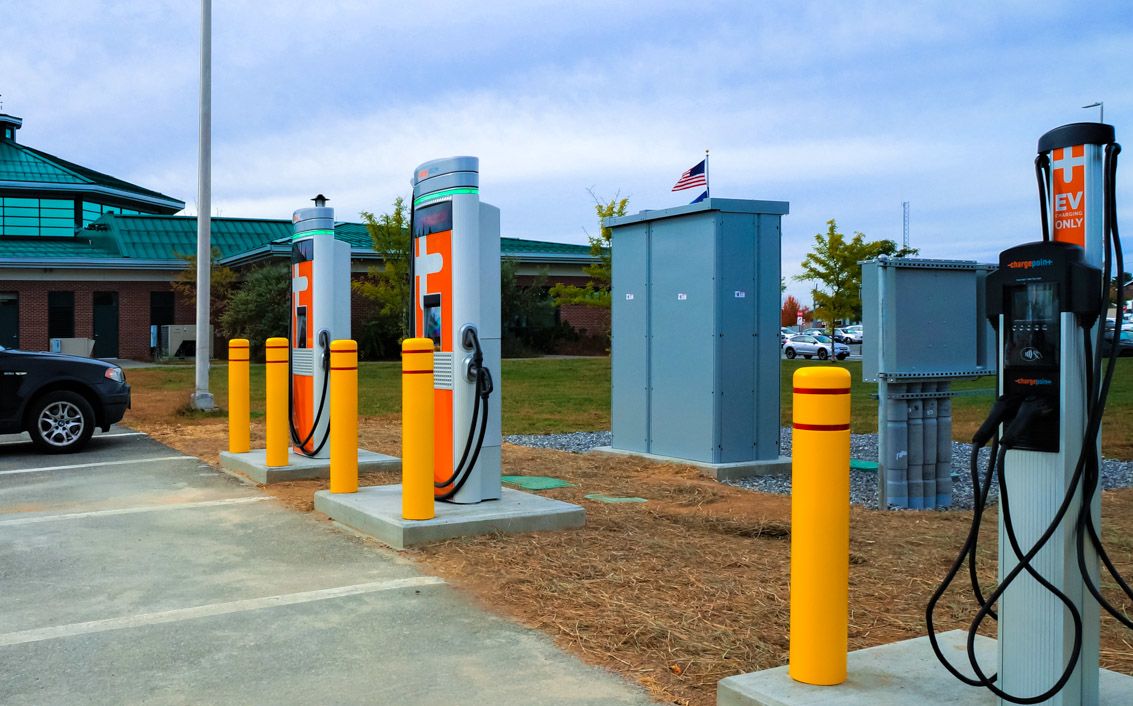Charging ahead: State looks to expand EV ports
 Photo / Maureen Milliken
An electric vehicle charging station at the West Gardiner rest area on the Maine Turnpike and Interstate 295. The state in August completed installation of the stations along several transportation corridors in the state.
Photo / Maureen Milliken
An electric vehicle charging station at the West Gardiner rest area on the Maine Turnpike and Interstate 295. The state in August completed installation of the stations along several transportation corridors in the state.
With the state’s initial program to install fast-charging stations for electric vehicles along a corridor from border to border complete, the next phase has started — to fill in the gaps.
Efficiency Maine Trust issued a request for proposals for bidders to host, buy, install and operate public Level 2 EV chargers across the state “where there is a high likelihood of significant use and longevity.” Bids are due Nov. 12.
Level 2 charges provide quick charging, and will be upgraded in the coming year as battery technology in cars becomes more efficient, says Barry Woods, ReVision Energy’s director of electric vehicle innovation.
Electric vehicle owners, as it is, can drive from the state’s southern border to Quebec knowing that there are a handful of free public EV fast chargers along the way.
The ChargePoint chargers were installed by ReVision over the summer and early fall. ReVision will maintain the chargers over the seven-year contract ChargePoint and ReVision have with the state.
They are at Maine Turnpike Authority service plazas in Kennebunk, both north and south, and in West Gardiner, where the Maine Turnpike and Interstate 295 meet, which serves both north and southbound traffic.
Others are on U.S. Route 201 in Jackman and Skowhegan, as well as Route 27 in Farmington; one on U.S. Route 302 in North Windham will be installed soon.
The initial charging station phase, according to Michael Stoddard, executive director of Efficiency Maine, was to “help draw tourists from Boston and Quebec, bringing more business to our local economy while maintaining [air quality].”
Woods says that focus on drivers from beyond Maine’s borders is important.
“Maine’s surrounded by places that are pretty robust at developing a network for electric vehicles,” he says.
That includes Quebec, which has 50,000 electric vehicles on the road, according to the Canadian Automobile Association. The province’s focus on electric vehicles is what lead to the chargers on routes 201 and 27 — they lead to state’s two border crossings with Quebec, at Coburn Gore on Route 27, and north of Jackman on Route 201. Of the 37 million tourists who visited Maine in 2018, 4.1 million were from Canada, the Maine Tourist Association said.
In Massachusetts, 3% of car sales are for plug-ins, says Woods, much higher than in Maine, which is less than 1%.
The latest phase focuses on state EV owners and businesses and potential ones. It aims to locate chargers at municipal properties, retail stores, gas stations, workplaces, hotels, multifamily buildings and other public sites along high traffic destinations.
Funding comes from the U.S. settlement with Volkswagen. The $5.1 million award is being used to provide financial incentives for electrical vehicle use.














0 Comments